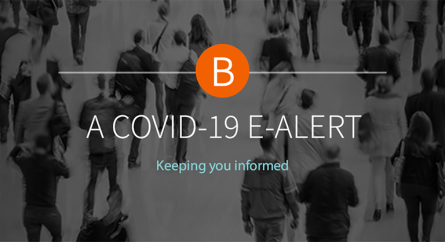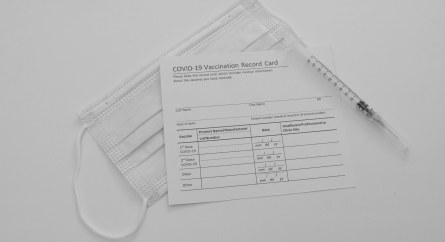Can Massachusetts Employers Offer Vaccination Incentives to Employees?
In light of the recent expanded access to COVID-19 vaccines, many employers have considered how to encourage their eligible workforce to voluntarily receive vaccinations in lieu of mandating vaccines in the workplace. One safe and relatively easy method used by many employers is to educate their employees. Periodic communications that raise awareness about the benefits of vaccination, address common questions and concerns, and encourage open discussion and social support can be very effective. In this regard, we suggest that employers consult the CDC’s toolkit for promoting vaccination of essential employees, which provides sample materials for communicating with employees and other helpful tips.
Another method to encourage employees involves offering tangible incentives to those who choose to get vaccinated. Unlike the educational method, however, the provision of incentives raises several thorny legal issues, and can open employers up to liability if they are not careful. Before deciding to offer incentives, employers should carefully consider the several federal (and any related state or local) laws that may be triggered by vaccination incentives.
Some Laws Relevant to Vaccination Incentive Programs
Some important federal laws that can be implicated by vaccination incentive programs include the Americans with Disabilities Act (ADA), Title VII of the Civil Rights Act, and the Fair Labor Standards Act (FLSA).
The ADA and Title VII, respectively, prohibit employment discrimination on the basis of disability and religion, and generally require employers to provide reasonable accommodations to employees with disabilities and sincerely held religious practices or beliefs. As such, employers who choose to award employees with vaccination incentives should consider adopting alternative means for employees who are unable to receive the vaccine to earn the same incentive benefit. As discussed in our previous client alert “Can Massachusetts Employers Collect COVID-19 Vaccination Cards From Employees?” employers seeking to collect vaccination data from employees must exercise caution regarding any vaccine or disability-related questions in order avoid potential ADA violations.
Vaccine incentive programs also implicate the ADA in another way: that law (and also the Genetic Information Nondiscrimination Act, or “GINA”) generally prohibits employers from coercing employees to participate in a “wellness program,” but generally allows employers to operate voluntary “wellness programs,” and a vaccine promotion program may fall within the definition of a “wellness program.” While it is clear that incentives can potentially turn a permissible voluntary wellness program into an impermissible coercive wellness program, the law is, unfortunately, currently unclear as to where that line is drawn. In January 2021, the EEOC issued new proposed rules providing that only “de minims” incentives were permissible. The EEOC has since withdrawn those proposed rules and, as discussed below, has indicated that it expects to provide updated guidance but has not yet done so. Accordingly, employers should proceed with caution pending the release of new EEOC guidance on the issue.
In addition, the FLSA requires employers to reimburse employees for expenses incurred on the employer’s behalf, where failure to reimburse would effectively cut into the employee’s wages, and also requires employers to pay wages for compensable work time. An employer who requires COVID-19 vaccinations would likely be required to pay wages for any time spent by employees during a workday to receive the vaccination. Employers should note, however, that the U.S. Department of Labor has released guidance stating that an incentive payment to receive a COVID-19 vaccine does not need to be included in employee’s regular rate of pay for the purpose of calculating overtime.
The Current State of the Law, and the PTO Option
Unfortunately, as referenced above, the Equal Opportunity Employment Commission (EEOC) has not yet released any guidance specifically addressing the relationship between COVID-19 vaccination incentives and federal EEO laws (including the ADA and Title VII). The EEOC did, however, announce in April 2021 that it expects to update its guidance to address this issue. Hopefully, this guidance will be released in the near future. Until that time, employers who want to offer incentives may want to consider offering a limited amount of paid leave to employees for the purpose of obtaining a COVID-19 vaccination. As discussed in our previous client alert, employers with fewer than 500 employees can receive tax credits for this leave until September 30, 2021 under the Families First Coronavirus Response Act (“FFCRA”) and American Rescue Plan Act (“ARPA”), provided all other eligibility requirements are met.
Client Tip
Employers should consider consulting with legal counsel prior to offering COVID-19 vaccination incentives, particularly in light of the current lack of EEOC guidance.
Categorized: COVID-19 Resources, Employment
Tagged In: Americans with Disabilities Act, coronavirus, COVID-19, Equal Opportunity Employment Commission, incentives, vaccination card, vaccine










